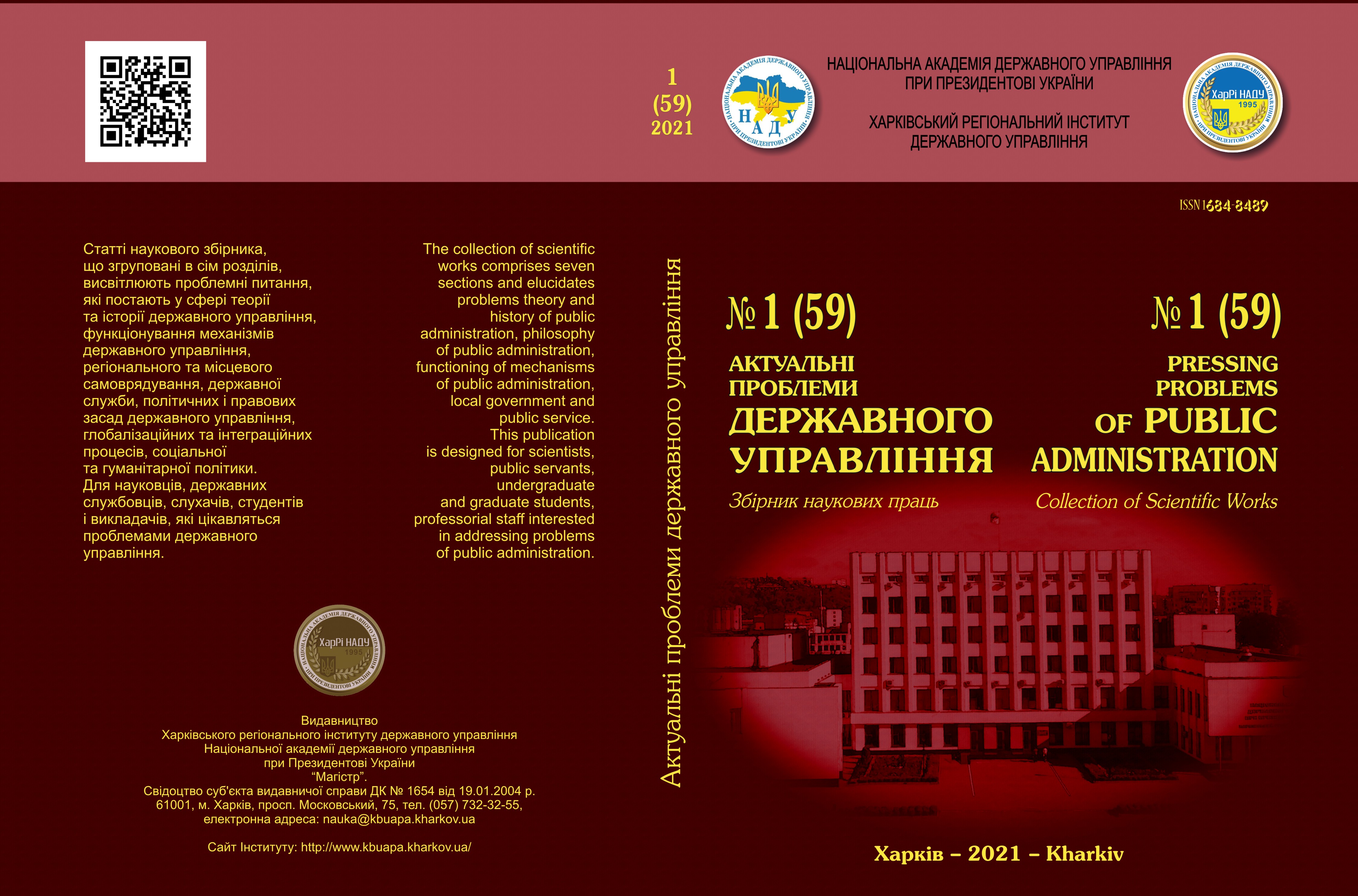THEORETICAL APPROACHES TO THE STUDY OF POLICY ON THE ELDERLY
Abstract
Theoretical approaches to the state of the elderly in society are systematized: the theory of social liberation; theory of activity in old age; the doctrine of natural rights and social justice, the doctrine of the rule of law and civil society; the doctrine of solidarity. The evolution of welfare theories is analyzed in order to find the best model for practical implementation in the social policy of Ukraine. It is recognized that the origin and development of ideas of well-being provides the social nature of social relations of the elderly. It is proved that the application of scientific theories will contribute to the state’s performance of a set of social protection functions, the government’s responsibility to meet the basic social needs of the elderly. The influence of social insurance theory on the model of social protection of the elderly is clarified. A combination of three forms of social insurance – (collective, state, mixed), in order to create a synthetic model of social protection of the elderly, where the latter are actors (actors) of public policy. Civil society is an effective mechanism for building relationships based on democracy, mass involvement to the interactions of almost the entire population, a barometer of social protection of all categories of the population.
Systematization of theories of welfare, social insurance, to offer an acceptable model of policy towards the elderly in Ukraine.
Changing of the demographic situation in Western European countries, in Ukraine, a new policy on the labor market, in the sphere of the wage and the growth of working retirees require a new forms of social solidarity, refusal of former standard forms of employees participation in single social insurance systems. Insufficient awareness of the people connected with the risks of the old age, the prevention of these processes in older age groups is the number one task for the social policy of the state addressed, in particular, to these wide sections of the population.
Downloads
References
Krasnova, O.V., Liders, A.G. (2002). Social’naja psihologija starenija [Social psychology of aging]. Moscow: Akademija [in Russia].
Makkonnell, K.R., Bryu, S. (1992). Ekonomiks: principy, problemy i politika [Economics: principles, problems and politics]. Moscow: Respublika [in Russia].
Rouls, D. (1995). Teorija spravedlivosti [The theory of justice]. Novosibirsk [in Russia].
Rih, A. (1996). Hozjajstvennaja jetika [Business ethics]. Moscow [in Russia].
Social’naya politika: kachestvo zhizni pozhilogo naseleniya i strahovye instituty socil’noj zashchity [Social policy: quality of life of the elderly and insurance institutions of social protection]. (2018). V.D. Roik (Ed.). Moscow [in Russia].
Novyj social’nyj vopros. Pereosmyslivaja gosudarstvo vseobshhego blagosostojanija [New social question. Rethinking the welfare state]. (1997). P. Rozanvallon (Ed.). Moscow [in Russia].
Gosudarstvo blagosostojanija:teorija i praktika [The Welfare State: Theory and Practice]. (2004). R. Gassler (Ed.). St. Petersburg [in Russia].
Kuusi, P. (1964). Social Policy for the Sixtics. A plan for Finland. Finland: Helsinki. 9. Offe, C. (1982). Some Contadictions of the Modern Welfare State. Critical Sociaal Policy. Berlin: Hertie School of Governance. P. 7–14.
Bulba, V.H. (2013). Sotsial’ni funktsii derzhavy v umovakh upravlinnia zminamy [Social functions of the state in terms of change management]. Derzhavne budivnytstvo, 2 [in Ukrainian].
Yelahin, V.P. (2013). Teoretyko-metodolohichni zasady stanovlennia ta rozvytku sotsial’noi derzhavy [Theoretical and methodological principles of formation and development of the welfare state]. Doctor’s thesis. Kyiv [in Ukrainian].

